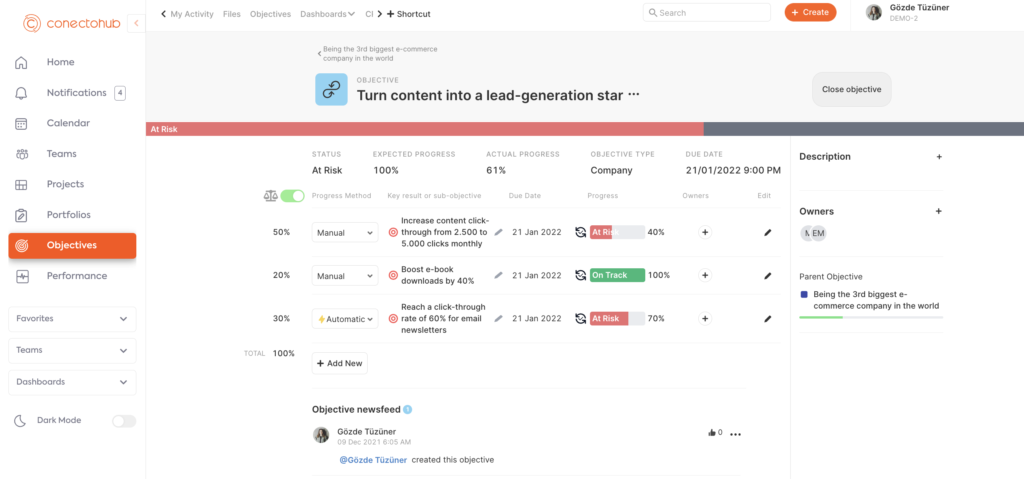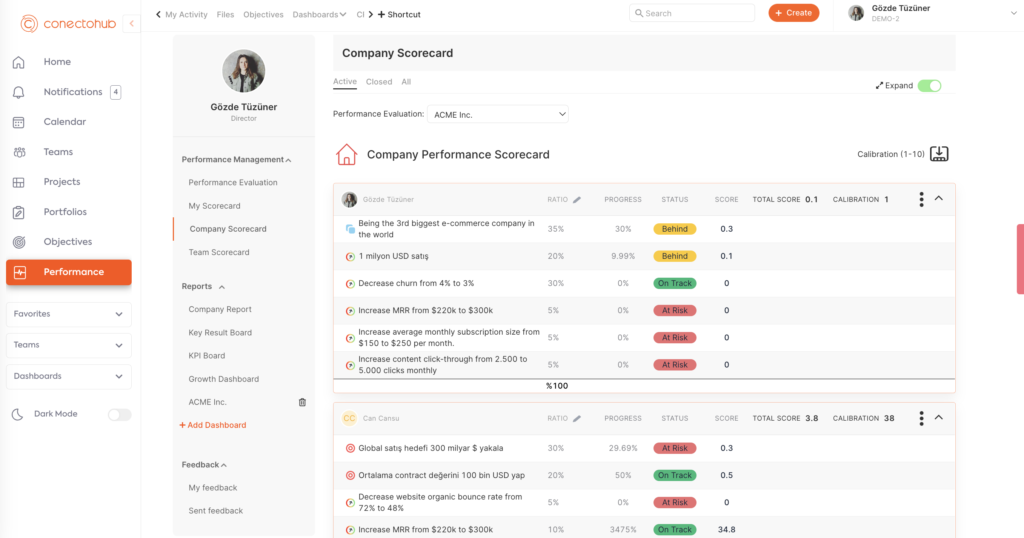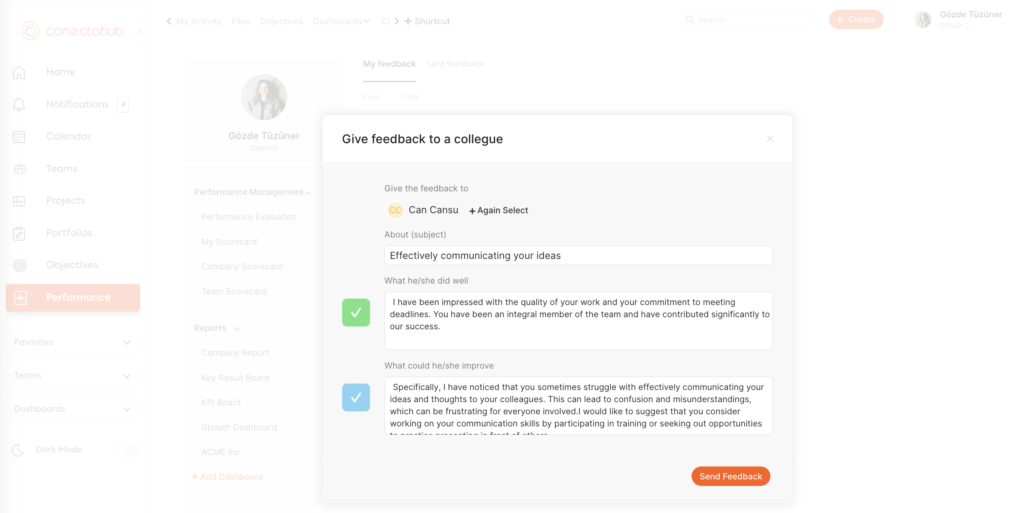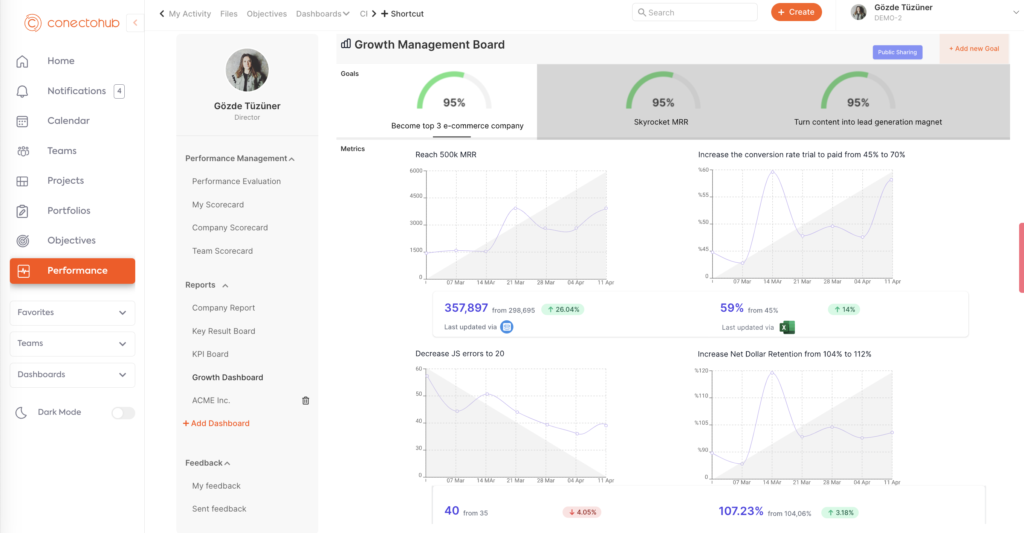
Start-ups and scale-ups are both types of companies that are in the process of growing and developing. However, there are some key differences between the two that can impact the roles and responsibilities of team members within the organization.
Scaling up a business, also known as scaling, refers to the process of increasing the size and capabilities of a business in order to meet the demands of a growing customer base and increase profitability. As a business scales, it may face a number of challenges, known as scaling problems, which can hinder its growth and success.
It is important for a company, especially a scaling company, to have a clear understanding of its operations, goals, and performance in order to make informed decisions and effectively manage its growth. This includes having detailed information about:
- Company’s financial health
- Market position
- Customers
- Competitors
- Internal processes
Companies can understand and manage their operations and growth by having clear and measurable goals, regularly reviewing and adjusting business processes, and regularly collecting and analyzing data to track progress and identify opportunities for improvement. It can also be helpful to have a strong team of professionals with diverse skills and expertise, as well as strong communication and collaboration within the organization. This requires strong operation and team management.
But how can a scale-up understand that they need to develop an operation and team management system?
From the startup to the scale-up stage, there are several warning signs that a company may need to invest more in people management in order to scale up effectively.
- Poor communication: If there is a lack of clear communication within the company, it can lead to misunderstandings, confusion, and poor decision-making.
- Lack of collaboration: If employees are not working well together or are not collaborating effectively, it can lead to inefficiencies and a lack of innovation.
- Low employee engagement: If your employees are not fully engaged in their work, it can lead to a range of negative outcomes such as decreased productivity, increased turnover, and a negative company culture.
- Lack of direction and clear goals: If your employees do not have clear goals and direction, it can lead to confusion and a lack of focus.
To address these scaling problems, scaleups may need to invest in people & operation management:
Hire the right people: Make sure you hire people who are good communicators and who fit in with the company’s culture.
Set productive meeting rules: Apple had 2 rules to foster a culture of accountability within teams. Having a directly responsible person (DRP) and an action list are two effective ways to make meetings more productive. These 2 rules can help to make meetings more effective by providing clarity and accountability, and by helping to ensure that important tasks and decisions are not forgotten or overlooked.
- Assign a directly responsible person: A DRP is a person who is directly responsible for the outcome of a task or project. By assigning a DRP to each task or topic discussed in a meeting, you can ensure that someone is accountable for following through on any actions or decisions made during the meeting. This can help to prevent confusion or misunderstandings about who is responsible for what, and it can also help to keep the meeting focused and on track.
- Create an action list: An action list is a document that lists all of the tasks, decisions, and follow-up items that need to be completed as a result of a meeting. By creating an action list and reviewing it at the end of each meeting, you can make sure that everyone knows what they need to do and when they need to do it. This can help to prevent delays or roadblocks, and it can also help to keep the team focused and aligned on their goals.
3. Clearly define roles and responsibilities: Make sure that everyone in the company knows what is expected of them and who they should go to for different types of information.
4. Use people management techniques: such as goal setting, performance management, and leadership development can help provide clarity and direction to your employees and help employees understand their role and work contributes to the overall goals in the company’s success; otherwise, teams cannot focus and we tend to see failure at this stage. This can help employees feel more connected to the company and motivated to contribute to its success.

As a startup grows and becomes a scaleup, it’s important for the company to have a clear career management strategy in place for its employees. Overall, a strong career management strategy can help to create a positive and supportive work environment for employees at a scaleup, which can in turn help to improve retention and overall organizational success. Performance management systems should be in place to help employees understand how they are doing and where they can improve.

Find out more in our article Difference Between OKRs and KPIs
Also learn more about performance management OKRs, KPIs & Performance Management
Need more OKR examples for your business? Reach more OKR Examples
New to OKRs? **Start with the OKR fun course**
5. Encourage feedback and collaboration: Encourage employees to give feedback and work collaboratively to solve problems and make decisions. By creating alignment and focus within the organization, companies can make a significant difference in their ability to scale up effectively. Investing in people management can help address these issues and set the company up for long-term success.By taking these steps, a company can improve communication and create a more cohesive and effective team as it scales up.

6. Create data-based decision making process & culture:Using data to inform decision-making can help startups and scaleups make better use of their resources, identify and prioritize opportunities, and mitigate risk. It can also help them better understand their customers, markets, and competitors, and make more targeted and effective marketing and sales efforts. Having quick access to this information can help the company identify areas for improvement, optimize resources, and make informed decisions about future growth. It can also help the company track its progress and ensure that it is meeting its goals.

The key to scale is being able to collect, view and analyze all the relevant data in one place. Without both sides being represented, it’s impossible to really understand how the KPIs balance out. ConectoHub has made it a priority to build a solution that supports fast growing companies in being able to manage their strategy and daily execution from one platform and see every detail of their company instantly.
- With OKR System supported by AI, lead your company, set your objectives and get best Key Results
- Manage your business as usuals with KPIs.
- With automated OKRs and KPIs you can entegrate your goals with business metrics like sales, profit, etc. from +5000 platforms like Hubspot, Google Analytics, Excel etc. and see the progress automatically.
- Create performance system for your organisation. Give different weight to your goals. Finally access the performance of all the hierarchies in the organisation on the basis of work output instantly.
- ConectoHub provides a variety of ways to personalize your dashboard
- Manage your daily operations on the same platform where you are managing your goals.
